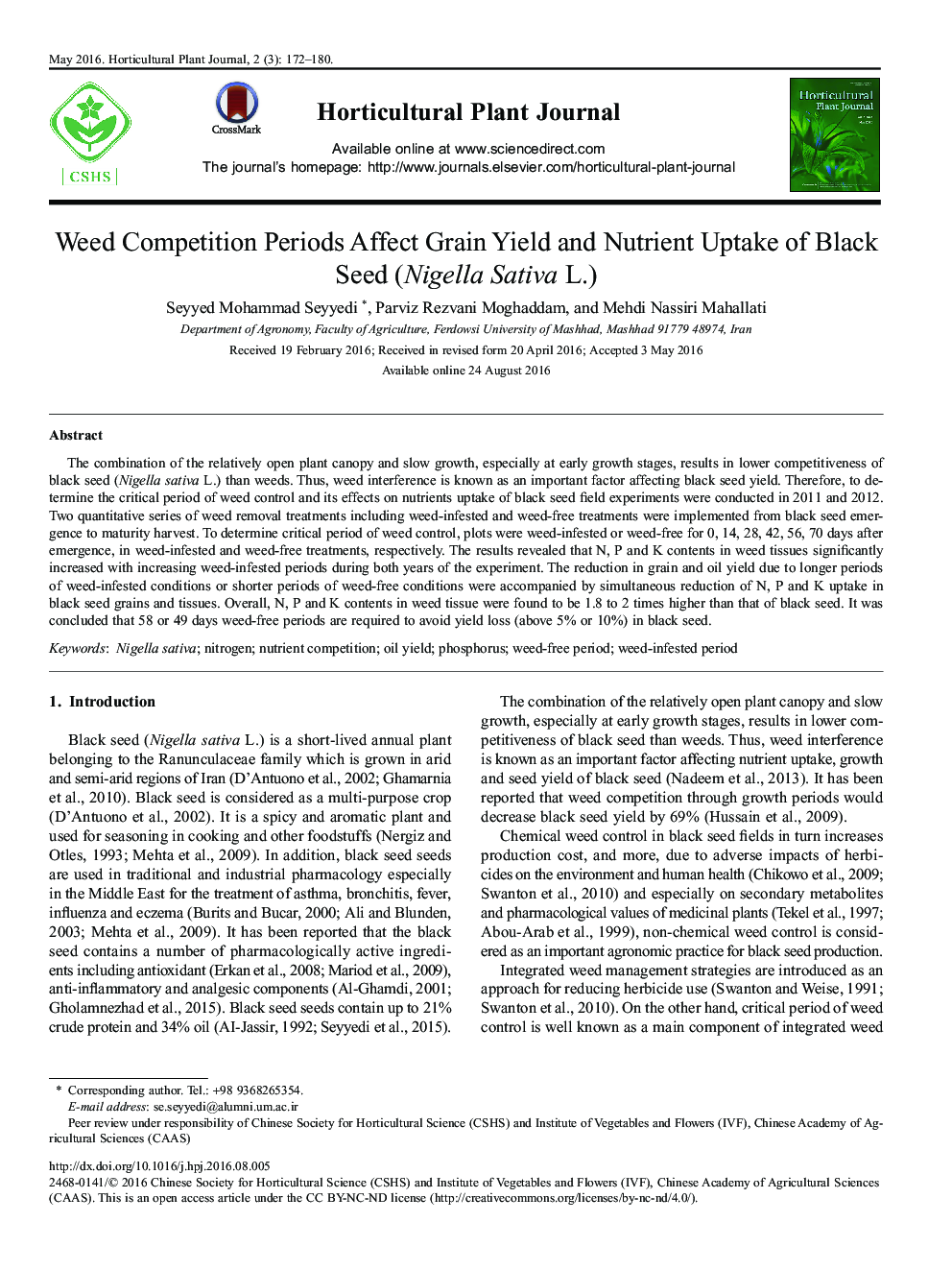| Article ID | Journal | Published Year | Pages | File Type |
|---|---|---|---|---|
| 4565821 | Horticultural Plant Journal | 2016 | 9 Pages |
The combination of the relatively open plant canopy and slow growth, especially at early growth stages, results in lower competitiveness of black seed (Nigella sativa L.) than weeds. Thus, weed interference is known as an important factor affecting black seed yield. Therefore, to determine the critical period of weed control and its effects on nutrients uptake of black seed field experiments were conducted in 2011 and 2012. Two quantitative series of weed removal treatments including weed-infested and weed-free treatments were implemented from black seed emergence to maturity harvest. To determine critical period of weed control, plots were weed-infested or weed-free for 0, 14, 28, 42, 56, 70 days after emergence, in weed-infested and weed-free treatments, respectively. The results revealed that N, P and K contents in weed tissues significantly increased with increasing weed-infested periods during both years of the experiment. The reduction in grain and oil yield due to longer periods of weed-infested conditions or shorter periods of weed-free conditions were accompanied by simultaneous reduction of N, P and K uptake in black seed grains and tissues. Overall, N, P and K contents in weed tissue were found to be 1.8 to 2 times higher than that of black seed. It was concluded that 58 or 49 days weed-free periods are required to avoid yield loss (above 5% or 10%) in black seed.
